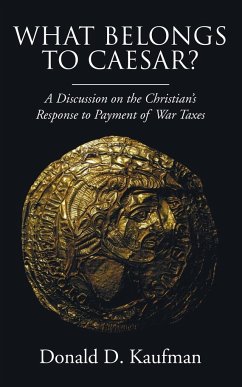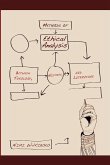Even before American soldiers were involved in fighting in the war in Vietnam, someone observed that the United States government was spending money ""like a drunken sailor. The years since then have substantiated the truth of that observation. The exorbitant cost of war production and the fantastic waste involved in military spending has prompted more and more citizens to inquire as to just what tax funds are being spent on. Disgruntled taxpayers discover that wars and taxes invariably go together. When governments engage in wars, they immediately levy taxes on the citizens to pay for them. This pattern of taxation is firmly grounded in historical experience. In an effort to see the parallels between our times and earlier times, the author begins his study of the war tax problem by taking a brief look at the history of taxation (both ancient and modern). With this background for perspective he moves on to examine several biblical passages like ""Render to Caesar . . . , which are often used to justify an absolute, unquestioning obedience to governmental demands. Here is a ""hang-up that frequently paralyzes Christian social concern into helpless indifference. A third section of the book explores three basic arguments against the voluntary payment of war taxes. The appeal and power of these arguments are then demonstrated by reviewing only a few of the ways in which people have attempted to resolve this painful ethical dilemma. The author makes a strong case for a more radical Christian application of what it means to be a conscientious objector to war. He claims that those who are willing to refuse the government their ""warm bodies but nevertheless volunteer (however reluctantly) their ""cold cash for war taxes, are failing to make the choice of discipleship where it counts. Instead, the Christian must find in his commitment to God the kind of courage which enables him to say a decisive No! to the unreasonable demands of government, regardless of the consequences to his own life. Nothing less than this will be adequate to confront the evil and potential destructiveness of our giant ""military-industrial complex.
Hinweis: Dieser Artikel kann nur an eine deutsche Lieferadresse ausgeliefert werden.
Hinweis: Dieser Artikel kann nur an eine deutsche Lieferadresse ausgeliefert werden.








